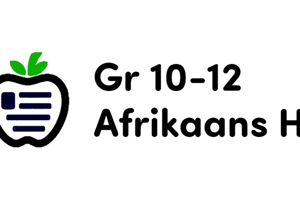Podcast
Questions and Answers
Which of the following is an example of a subject pronoun in Afrikaans?
Which of the following is an example of a subject pronoun in Afrikaans?
- ek (correct)
- hom
- onsel
- haar
What is the purpose of possessive pronouns in Afrikaans?
What is the purpose of possessive pronouns in Afrikaans?
- To indicate possession (correct)
- To ask questions
- To refer to non-specific items
- To point to specific things
Which of the following is NOT a type of pronoun listed in Afrikaans?
Which of the following is NOT a type of pronoun listed in Afrikaans?
- Interrogative pronouns
- Demonstrative pronouns
- Reflexive pronouns
- Causative pronouns (correct)
What does the interrogative pronoun 'wie' translate to in English?
What does the interrogative pronoun 'wie' translate to in English?
How does the formal pronoun 'u' differ from the informal 'jy' in Afrikaans?
How does the formal pronoun 'u' differ from the informal 'jy' in Afrikaans?
Flashcards are hidden until you start studying
Study Notes
Pronouns in Afrikaans
1. Personal Pronouns
- Subject Pronouns: Used as the subject of a sentence.
- ek (I)
- jy (you, singular informal)
- u (you, singular formal)
- hy (he)
- sy (she)
- dit (it)
- ons (we)
- jul (you, plural informal)
- hulle (they)
2. Object Pronouns
- Used as the object of a verb or preposition.
- my (me)
- jou (you, singular informal)
- u (you, singular formal)
- hom (him)
- haar (her)
- dit (it)
- ons (us)
- jul (you, plural informal)
- hulle (them)
3. Possessive Pronouns
- Indicate ownership or possession.
- my (my)
- jou (your, singular informal)
- u (your, singular formal)
- sy (his)
- haar (her)
- ons (our)
- jul (your, plural informal)
- hulle (their)
4. Reflexive Pronouns
- Refers back to the subject.
- myself (myself)
- jou self (yourself, singular informal)
- u self (yourself, singular formal)
- homself (himself)
- haarself (herself)
- onsself (ourselves)
- jul self (yourselves, plural informal)
- hulleself (themselves)
5. Demonstrative Pronouns
- Point to specific things or people.
- hierdie (this)
- daardie (that)
- dit (it, when referring to something mentioned)
6. Interrogative Pronouns
- Used to ask questions.
- wie (who)
- wat (what)
- watter (which)
7. Indefinite Pronouns
- Refer to non-specific items or people.
- iemand (someone)
- niemand (no one)
- almal (everyone)
- iets (something)
- niks (nothing)
8. Differences from English
- Pronoun forms in Afrikaans often have fewer distinctions in gender and number compared to English.
- The formal "u" is used in respectful contexts, unlike the more casual "jy."
Summary
Afrikaans pronouns include personal, object, possessive, reflexive, demonstrative, interrogative, and indefinite types. Each serves a distinct grammatical function within sentences, and there are notable differences from English usage, particularly in formality and distinctions.
Afrikaans Pronouns
- Afrikaans pronouns include personal, object, possessive, reflexive, demonstrative, interrogative, and indefinite pronouns.
- Personal pronouns are used as the subject of a sentence, including:
- ek (I)
- jy (you, singular informal)
- u (you, singular formal)
- hy (he)
- sy (she)
- dit (it)
- ons (we)
- jul (you, plural informal)
- hulle (they)
- Object pronouns are used as the object of a verb or preposition, including:
- my (me)
- jou (you, singular informal)
- u (you, singular formal)
- hom (him)
- haar (her)
- dit (it)
- ons (us)
- jul (you, plural informal)
- hulle (them)
- Possessive pronouns indicate ownership or possession, including:
- my (my)
- jou (your, singular informal)
- u (your, singular formal)
- sy (his)
- haar (her)
- ons (our)
- jul (your, plural informal)
- hulle (their)
- Reflexive pronouns refer back to the subject, including:
- myself (myself)
- jou self (yourself, singular informal)
- u self (yourself, singular formal)
- homself (himself)
- haarself (herself)
- onsself (ourselves)
- jul self (yourselves, plural informal)
- hulleself (themselves)
- Demonstrative pronouns point to specific things or people, including:
- hierdie (this)
- daardie (that)
- dit (it, when referring to something mentioned)
- Interrogative pronouns are used to ask questions, including:
- wie (who)
- wat (what)
- watter (which)
- Indefinite pronouns refer to non-specific items or people, including:
- iemand (someone)
- niemand (no one)
- almal (everyone)
- iets (something)
- niks (nothing)
- Afrikaans pronoun forms often have fewer distinctions in gender and number compared to English.
- The formal "u" is used in respectful contexts, unlike the more casual "jy."
Studying That Suits You
Use AI to generate personalized quizzes and flashcards to suit your learning preferences.




